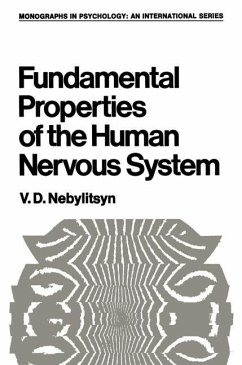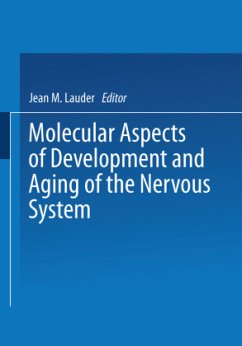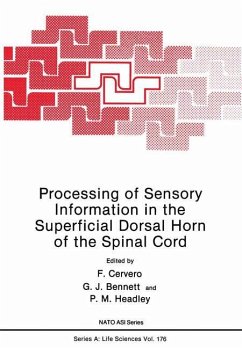
Fundamental Properties of the Human Nervous System

PAYBACK Punkte
20 °P sammeln!
Although today differential psychology embraces a large and ever-increasing body of facts, conclusions, and practical recommendations which have wide applicability, a number of critical problems are still unresolved or only partly resolved. One of the most important of these is the relationship between individual variations in human behavior and in dividual features of a range of correlated physiological functions. Adequate concepts exist for understanding individual variations in some physiological functions underlying specific aspects (speed, tempo, rhythm, amplitude) of the flow of psychica...
Although today differential psychology embraces a large and ever-increasing body of facts, conclusions, and practical recommendations which have wide applicability, a number of critical problems are still unresolved or only partly resolved. One of the most important of these is the relationship between individual variations in human behavior and in dividual features of a range of correlated physiological functions. Adequate concepts exist for understanding individual variations in some physiological functions underlying specific aspects (speed, tempo, rhythm, amplitude) of the flow of psychical activity. This fact alone is of considerable importance, especially when we consider that such dynamic features can-and sometimes do in a fundamental way-modulate psychological functioning. If we consider, in addition, that in certain circumstances these variables have a direct and sometimes decisive effect on the final behavioral outcome, it seems obvious that the parameters of physiologically active systems determine a number of important features of complex human behavior. According to Pavlov, the most important of these is that system com prising central nervous system properties, which determine the generation of excitatory and inhibitory processes in the structures of the central nervous system. The concept of basic nervous system properties as leading parameters of the psychophysiological organization of individuality seems to be one of the outstanding achievements of the Pavlovian school. It provided the framework within which investigators could attempt to determine ex perimentally individual features of behavior and reactivity.












